Is Cheese a Good Probiotic?
Is cheese a good probiotic—yes or no? Watch to find out!
DATA:
https://ods.od.nih.gov/factsheets/Probiotics-HealthProfessional/
https://www.sciencedirect.com/science/article/abs/pii/S0924224409001770
https://www.ncbi.nlm.nih.gov/pmc/articles/PMC4352748/
https://pubmed.ncbi.nlm.nih.gov/24905221/
https://pubmed.ncbi.nlm.nih.gov/22981567/
https://pubmed.ncbi.nlm.nih.gov/11435500/
https://pubmed.ncbi.nlm.nih.gov/24024770/
Timestamps
0:00 Introduction
0:10 Is cheese a good probiotic?
1:04 What are the best natural cheese probiotics?
2:10 Why I don’t consume too much cheese
2:42 How to bullet-proof your immune system - course
In this video, we’re going to talk about cheese as a probiotic. When you think about natural probiotics, yogurt and kefir probably come to mind—but you may not have considered cheese.
Is cheese a good probiotic? In fact, cheese can be a great probiotic—if you consume the right cheese.
Your body has about 100-trillion microbes. There’s a constant battle between the good and bad bacteria. Antibiotics and poor eating habits can bad microbes the upper hand.
Cheese has live cultures (microorganisms) that can help support your gut’s microbial balance. Unlike yogurt and kefir, cheese contains very little sugar (lactose). Cheese also contains a lot of healthy nutrients such as protein and calcium.
The cheeses that contain the most probiotics are those that are aged cheeses that aren’t heated. Keep an eye out for raw milk cheeses—these are the ones that you want.
Make sure the cheese you buy is organic and from grass-fed cows. I personally prefer European cheeses over American cheeses.
Soft cheese has more friendly bacteria than hard cheese.
Here are some cheeses you should try:
• Cheddar
• Parmesan
• Swiss
• Gruyere
• Gouda (best probiotic cheese)
Keep in mind that you should consume only a moderate amount of cheese. Cheese can contain hormones that may affect your prostate or contribute to fibroids in high amounts. Don’t over-do it, and you should be fine.
Dr. Eric Berg DC Bio:
Dr. Berg, age 58, is a chiropractor who specializes in Healthy Ketosis & Intermittent Fasting. He is the author of the best-selling book The Healthy Keto Plan, and is the Director of Dr. Berg Nutritionals. He no longer practices, but focuses on health education through social media.
Follow us on FACEBOOK: https://fb.me/DrEricBerg
Send a Message to his team: https://m.me/DrEricBerg
ABOUT DR. BERG: https://bit.ly/3a4LAtN
Disclaimer:
Dr. Eric Berg received his Doctor of Chiropractic degree from Palmer College of Chiropractic in 1988. His use of “doctor” or “Dr.” in relation to himself solely refers to that degree. Dr. Berg is a licensed chiropractor in Virginia, California, and Louisiana, but he no longer practices chiropractic in any state and does not see patients so he can focus on educating people as a full time activity, yet he maintains an active license. This video is for general informational purposes only. It should not be used to self-diagnose and it is not a substitute for a medical exam, cure, treatment, diagnosis, and prescription or recommendation. It does not create a doctor-patient relationship between Dr. Berg and you. You should not make any change in your health regimen or diet before first consulting a physician and obtaining a medical exam, diagnosis, and recommendation. Always seek the advice of a physician or other qualified health provider with any questions you may have regarding a medical condition.
#keto #ketodiet #weightloss #ketolifestyle
Thanks for watching. I hope this helped explain why cheese can be a beneficial natural probiotic. I’ll see you in the next video.
-
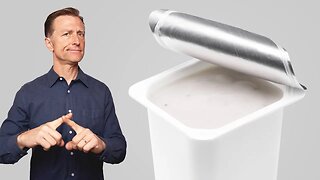 6:22
6:22
Dr. Eric Berg
2 years agoThe Best Probiotic Food Is Definitely NOT Yogurt
62 -
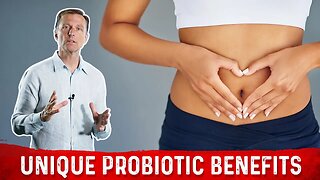 2:33
2:33
Dr. Eric Berg
4 years agoBenefits of Probiotics That You’ve Never Considered
36 -
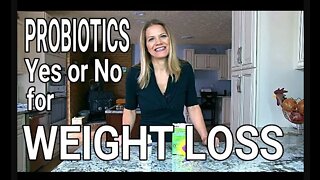 5:38
5:38
Dr. Becky Fitness
1 year agoWill a Probiotic Help Me Lose Weight?
961 -
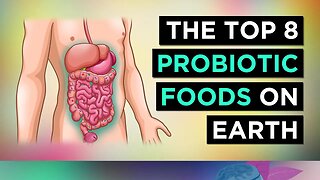 12:26
12:26
Ryan Taylor Natural Remedies
1 year agoThe BEST 8 PROBIOTIC Foods In The WORLD
56 -
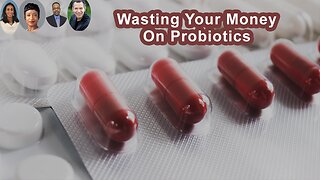 11:53
11:53
TheRealTruthAboutHealth
10 months agoWhy You Might Be Wasting Your Money On Probiotics
156 -
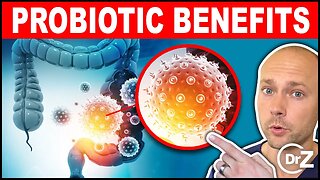 6:41
6:41
Dr. Nick Zyrowski
1 year agoProbiotic Benefits - Do They Actually Help You?
35 -
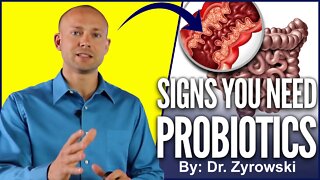 9:10
9:10
DrNickZyrowski
4 years agoProbiotic Benefits | Top Signs You Should Be Taking A Probiotics
71 -
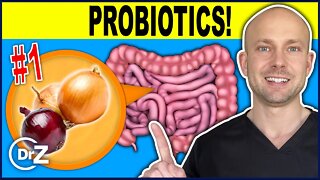 8:05
8:05
DrNickZyrowski
2 years agoDo This Before You Take A Probiotic - Probiotic Benefits
4 -
 6:38
6:38
Dr. Becky Fitness
2 years agoLactose Intolerant Dieter? These Dairy May Be OK
7824 -
 15:43
15:43
TheRealTruthAboutHealth
11 months agoThe Best Thing You Can Do To Feed Your Microbiome
133